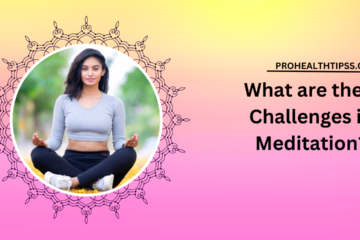Can Meditation Increase Concentration
Meditation has been shown to significantly enhance concentration and focus. By engaging in regular meditation practice, individuals can strengthen their ability to sustain attention, improve cognitive abilities, and reduce distractions. Through techniques like mindfulness meditation, practitioners learn to cultivate a heightened sense of awareness and develop greater control over their thoughts and mental processes. As a result, meditation serves as a powerful tool for boosting concentration and achieving a state of deep mental clarity.

Types of Meditation
There are several types of meditation practices, each with its own unique techniques and approaches. Some of the commonly practiced types of meditation include:
- Mindfulness Meditation:
This type of meditation involves focusing your attention on the present moment, being aware of your thoughts, feelings, and bodily sensations without judgment.
- Loving-Kindness Meditation:
Also known as Metta meditation, this practice involves cultivating feelings of love, kindness, and compassion towards oneself and others.
- Transcendental Meditation (TM):
TM is a technique where practitioners repeat a mantra silently to themselves, aiming to reach a state of deep relaxation and heightened awareness.
- Guided Visualization:
In this form of meditation, individuals are guided through a specific mental image or scenario, engaging their senses and imagination to promote relaxation and focus.
- Breathing Meditation:
This practice involves focusing on the breath, observing its natural rhythm and flow, and bringing the attention back to the breath whenever the mind wanders.
Guided Meditation to Improve Focus or Concerntration
Sure! Here’s a guided meditation to help improve focus:
Begin by finding a comfortable seated position, either on a cushion or chair. Close your eyes gently, and take a deep breath in through your nose, and slowly exhale through your mouth. Let go of any tension in your body, allowing yourself to fully relax.
Now, bring your attention to the sensation of your breath. Notice the coolness as you inhale and the warmth as you exhale. Follow the natural rhythm of your breath, feeling the rise and fall of your abdomen or the sensation of the breath entering and leaving your nostrils.
As you continue to focus on your breath, thoughts may arise. Instead of getting caught up in these thoughts, simply acknowledge them and let them go, returning your attention back to your breath. Each time a thought arises, imagine it as a passing cloud in the sky, gently drifting away.
Now, shift your focus to the present moment. Bring your attention to the sounds around you. Notice any distant sounds, any nearby sounds, and the silence between them. Allow the sounds to come and go, without getting attached or trying to analyze them. Just observe.
Next, shift your attention to the physical sensations in your body. Start with your toes and gradually move your attention up through your legs, torso, arms, and head. Notice any sensations—tingling, warmth, or even areas of tension. Simply observe these sensations without judgment, allowing them to be as they are.
Now, bring your focus to a specific object of your choice. It could be a physical object, like a candle flame or a small item in front of you, or it could be a mental image, such as a bright, radiant light or a tranquil scene in nature. Fix your attention on this object, observing its details, colors, and shapes. If your mind wanders, gently guide it back to the object of focus.
Continue to stay present with your chosen object, maintaining your focus and concentration. If distractions arise, acknowledge them, let them go, and bring your attention back to the object.
Take a few more moments to fully immerse yourself in this state of focused attention, enjoying the clarity and tranquility it brings. When you’re ready to conclude the meditation, gently bring your awareness back to your breath. Take a deep breath in, and as you exhale, slowly open your eyes.

Benefits of Meditation
Meditation offers a wide range of benefits for physical, mental, and emotional well-being. Here are some of the key benefits of regular meditation practice:
- Stress Reduction:
Meditation is a powerful tool for managing stress. It activates the body’s relaxation response, reducing the production of stress hormones and promoting a sense of calm and relaxation.
- Improved Concentration and Focus:
Regular meditation enhances attention and concentration skills. It trains the mind to stay present and focused, leading to improved productivity and the ability to sustain attention on tasks.
- Emotional Well-being:
Meditation helps regulate emotions by promoting self-awareness and emotional resilience. It can reduce symptoms of anxiety, depression, and other mood disorders while fostering a greater sense of positivity and well-being.
- Enhanced Self-Awareness:
Through meditation, you develop a deeper understanding of your thoughts, emotions, and behaviors. This increased self-awareness allows you to make conscious choices and respond more skillfully to challenging situations.
- Increased Mindfulness:
Mindfulness is a central aspect of many meditation practices. It involves being fully present and engaged in the current moment, cultivating a non-judgmental awareness of your thoughts, sensations, and surroundings. Regular mindfulness practice can lead to greater clarity, acceptance, and an enriched experience of life.
- Improved Sleep:
Meditation can help improve sleep quality and reduce insomnia. By promoting relaxation, calming the mind, and reducing stress, it can contribute to a more restful and rejuvenating sleep.
- Physical Health Benefits:
Meditation has been linked to various physical health benefits, including reduced blood pressure, improved immune function, decreased inflammation, and better pain management.
- Increased Compassion and Kindness:
Certain meditation practices, such as loving-kindness meditation, foster feelings of compassion, empathy, and kindness towards oneself and others. These qualities can improve relationships, social connections, and overall well-being.
- Cognitive Enhancement:
Research suggests that meditation can enhance cognitive functions, such as memory, attention, and problem-solving abilities. It may also help counteract age-related cognitive decline.
- Spiritual Growth:
For those seeking spiritual growth or a deeper connection with their inner self, meditation can serve as a pathway for self-discovery, self-reflection, and accessing higher states of consciousness.

What is the best meditation improve focus and concerntration
There isn’t a single “best” meditation technique for improving focus and concentration, as different approaches work for different individuals. However, here are a few meditation techniques known to be particularly effective for enhancing focus and concentration:
- Breath Awareness Meditation:
This practice involves focusing your attention on the breath. Observe the natural rhythm of your inhalations and exhalations, and whenever your mind wanders, gently bring your attention back to the breath. It helps cultivate present-moment awareness and strengthens concentration skills.
- Single-Pointed Focus Meditation:
Choose a specific object of focus, such as a candle flame, a mantra, or a mental image. Direct your attention solely to that object, observing it with unwavering attention. Whenever your mind drifts away, gently guide it back to the chosen focal point. This practice trains your mind to stay focused on a single point, increasing concentration abilities.
- Mindfulness Meditation:
Mindfulness meditation involves being fully present and aware of your thoughts, emotions, bodily sensations, and the surrounding environment. By practicing non-judgmental awareness of the present moment, you develop the capacity to observe distractions without getting entangled in them, thus enhancing focus and concentration.
- Walking Meditation:
In walking meditation, you maintain a deliberate and focused awareness of the physical sensations and movements associated with walking. Pay attention to each step, the lifting and placing of your feet, and the sensation of your body in motion. This practice can help anchor your attention and improve concentration.
- Body Scan Meditation:
This technique involves systematically directing your attention through different parts of your body, from head to toe or vice versa. By focusing on each body part and its sensations, you cultivate a deep sense of presence and concentration, sharpening your ability to stay attentive.
Related Article:-50 Benefits of Meditation
Should Meditation Be Done With Music
Suggession
To enhance concentration through meditation, it’s helpful to establish a regular practice, dedicating specific time each day to focus inward. Start with shorter sessions and gradually increase the duration. Find a quiet and comfortable environment, free from distractions. Choose a meditation technique that resonates with you, such as breath awareness or mindfulness. Use the breath as an anchor for your attention, gently bringing your focus back whenever your mind wanders. Cultivate present-moment awareness, observing thoughts and distractions without judgment, and returning to the present experience. Consistency, patience, and self-compassion are key. With dedicated practice, meditation can become a powerful tool to sharpen your concentration skills.
Conclusion
Meditation has shown to be a valuable practice for increasing concentration. By regularly engaging in meditation, individuals can develop the ability to sustain focused attention, enhance their cognitive processes, and cultivate a sense of present-moment awareness. Various meditation techniques, such as breath awareness, mindfulness, and single-pointed focus, provide effective tools to train the mind and improve concentration skills. However, it’s important to approach meditation with consistency, patience, and an open mind. Each meditation session contributes to the gradual development of concentration, leading to enhanced focus, clarity, and an overall improved ability to concentrate on tasks and activities in daily life.
Also listen Meditation video Music:




[…] Read More Can Meditation Increase Concentration Click Here […]